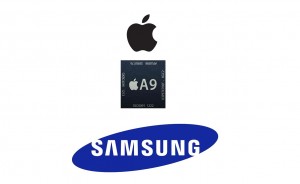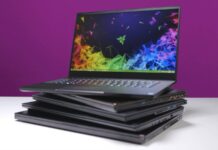 Samsung and TSMC competed to obtain Apple's contracts to manufacture the A9 chip iPhone 6S, 6S iPhone Plus or iPad Air 2, and the first of them seems to have obtained most of the production from those in Cupertino.
Samsung and TSMC competed to obtain Apple's contracts to manufacture the A9 chip iPhone 6S, 6S iPhone Plus or iPad Air 2, and the first of them seems to have obtained most of the production from those in Cupertino.
How did Samsung manage to convince Apple to give it a higher percentage of production compared to TSMC? Well, the prices were much lower than those practiced by the Taiwanese, but in order to be able to manufacture the future A9 chip using a 14nm FinFET manufacturing process, those from Samsung resorted to intellectual theft.
Specifically, a former manager of TSMC stole documents describing the chip manufacturing process within TSMC and gave them to Samsung, he is now employed at a Samsung-sponsored university where students are... employed Samsung, and is now the company's CTO.
If you think that this former manager was punished exemplary by the authorities for the theft of documents that describe a technology for the development of which billions of dollars were invested, well you would be wrong because he was only prohibited from employment within Samsung for 4 months.
Taiwan's top court has ruled in favor of TSMC in a trade secret case against Liang Mong-song, a former senior director of R&D at TSMC. Liang has been accused of revealing TSMC's trade secrets and patents related to its advanced process technology to Samsung Electronics. Liang played a key role in allowing Samsung to beat TSMC in the 14/16nm race, according to a report published by Taiwan's CommonWealth magazine.
Taiwan's top court ruled in favor of TSMC in its lawsuit against Samsung, but although the person in question is a former senior manager of the research and development division named Liang Mong-song, he won't lose that much. .
Thanks to technology stolen from TSMC, Samsung can produce Apple's new A9 chips with a manufacturing process that will make it nearly impossible to detect the source of these chips, so anyone will be able to mistake a TSMC chip for one of Samsung and vice versa.
To be honest, in this whole story I am only surprised by the fact that the Taiwanese legislation is so poorly thought out that it generates billions of dollars in losses for companies without any person being held accountable or any company paying.
The entire case took place in 2011 and has been tried until now, and although the documents were stolen in 2011, they contained information that presented the methods of perfecting production over the years, the technologies used by the two companies evolving towards be almost identical in 2015.















